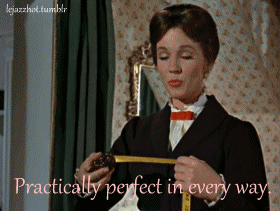Minding the Confidence Gap
Last week, I was talking to one of our team about a talented developer who I wanted to lure away from her current job with the promise of a superhero cape and Wine Fridays.
It seemed like I might have a chance – but then I got the disappointing news: Since she didn’t have all of the qualifications we were looking for, she was opting not to apply.

<facepalm />
I’d just spent hours (okay, maybe not hours) sifting through the resumes of countless (okay – maybe not countless, but definitely many) Toms, Dicks, and Harrys, many of whom met just a handful of the specs in the job description. It was a total facepalm moment.
That conjured up memories of a frustrating statistic I’d heard years ago, and which was recently reiterated in an insightful article in last month’s The Atlantic. While trying to get more women on their management team, Hewlett-Packard did a data dive, and found this:
A review of personnel records found that women working at HP applied for a promotion only when they believed they met 100 percent of the qualifications listed for the job. Men were happy to apply when they thought they could meet 60 percent of the job requirements.
Horseshoes, Hand Grenades, and The Average Man’s Professional Plan
 In short, men felt that “good enough” was, in fact, good enough; women felt that they had to be practically perfect in every way to justify taking the time of the hiring team.
In short, men felt that “good enough” was, in fact, good enough; women felt that they had to be practically perfect in every way to justify taking the time of the hiring team.
The Atlantic article, called “The Confidence Gap,” digs deep into this phenomenon and comes up with all sorts of not awesome info. No matter how amazing and accomplished we are, we say we don’t deserve it, and give the credit to others, especially (!@#%@# gahhh!) if the others are men.
Women are plagued by the worry that someone is going to realize, any minute, that we’re not freaking awesome. We shoot ourselves in the foot by not applying for top-notch jobs. When we do apply, we usually don’t negotiate for better salaries; if we do negotiate, we ask for less than our male peers.
“Honest Over-Confidence”
 Study after study shows that men consistently over-estimate their ability and their performance; women underestimate theirs. Almost invariably, men think that they will do better at a task than they actually will, and in retrospect, they will assess their performance as higher than a woman would. After taking a test, a man who scored 70% will say, effectively, “I killed it!!” and a woman with the same score will say “I totally bombed.”
Study after study shows that men consistently over-estimate their ability and their performance; women underestimate theirs. Almost invariably, men think that they will do better at a task than they actually will, and in retrospect, they will assess their performance as higher than a woman would. After taking a test, a man who scored 70% will say, effectively, “I killed it!!” and a woman with the same score will say “I totally bombed.”
If men don’t meet their own expectations, they blame the task: That task was super hard, and I am awesome since I didn’t fail worse than I did. Women will take that as a personal failing: I failed because I am not good enough.
Worth noting is that the phenomenon is known as “honest over-confidence.” Men aren’t trying to fool anyone. They genuinely tend to think they’re stronger/faster/better than they actually are at most things. Not to say men never doubt themselves – they just do it with less crippling fervor than women do. Lucky bastards.
This probably explains why a lot of men earnestly try to fix the busted kitchen sink before finally giving in to their spouse’s insistence that they call a plumber.
Confidence Matters
 And the worst part of it all? Confidence matters as much as – if not more than – competence. People trust and follow people who behave confidently, regardless of whether or not they’re any better at what they do than the next “guy.” (Note: I tend to use “guy” as a non-gender specific term. You’ll get used to it.)
And the worst part of it all? Confidence matters as much as – if not more than – competence. People trust and follow people who behave confidently, regardless of whether or not they’re any better at what they do than the next “guy.” (Note: I tend to use “guy” as a non-gender specific term. You’ll get used to it.)
This probably explains why almost every woman-dominated field is still led by men – and in many cases, by men less competent than many of their subordinates (think: hospital directors, school principals, library directors).
Apparently, the phenomenon of women’s perennially low confidence infuriates business leaders and executives everywhere. Incredibly talented women keep their mouths closed because they feel that the louder (usually male) voices in the room deserve to be heard more than they do.
We all know that teams that are gender-diverse perform better, but if a lack of confidence keeps women from taking a seat at the table, then that benefit is never realized.
Takeaways
I find this maddening – and I catch myself doing this stuff all the time. If my team makes a demanding deadline, I instinctively know it’s because they’re awesome and crazy talented, they worked late, they did something above and beyond. If my team fails to meet a deadline, my first instinct is to figure out how I failed.
The truth of course is that our projects succeed or fail because of everything each of us brings (or fails to bring) to the table every day.
To-Dos
So knowing what I now know, and knowing that it’s scientifically proven and not just a hunch, what do I need to do differently? Lots, probably, but here are a few.
- In Hiring
I need to remember that men and women with the same level of skill and experience will present themselves differently, and it’s up to me and the CK team to really dive in and make sure we’re hiring the right person for each job, and not just the person who tells us they’re the best fit for the job. - In High Fiving
Knowing that women will deflect credit and give it to the men on their teams (seriously – did you read that other Atlantic article?), I need to pay very close attention to how each individual staff member performs, and make sure to reward individuals as much as the team. - In Planning
I need to work closely with my team to make sure we can, in fact, achieve what we say we can when we say we can, and that we also never sell ourselves short.
There are probably a bazillion other lessons embedded in this, too; these are just the ones I know I need to focus on right now. If you have any other dazzling insights, or, you know, ones that you think are maybe just mediocre but that everyone else will probably think are amazing (ladies, I’m looking at you!), please feel free to share and respond on Facebook, Twitter, or LinkedIn!
Have something to say?